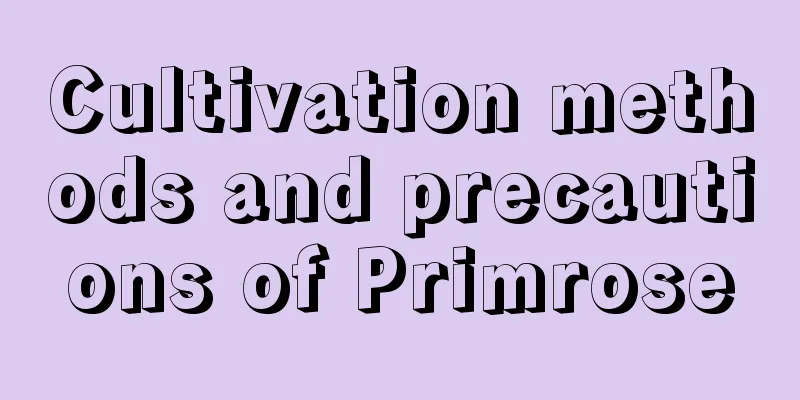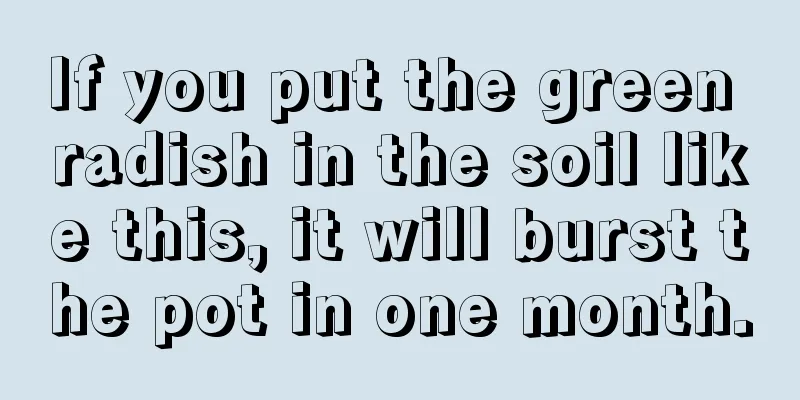Is morning glory poisonous? Pictures of morning glory

1. Is it poisonous?Morning glory is poisonous. Its stems, leaves, flowers and seeds are all poisonous, and the seeds are most toxic. The seeds are divided into two types, black and white, called black ugly and white ugly respectively. They can both be used as medicine, but they treat different diseases. If accidentally ingested, symptoms such as abdominal pain and vomiting may occur. In severe cases, it may cause hematuria and affect the brain nerves. 2. Can it be kept at home?Although morning glory is poisonous, it basically will not cause poisoning as long as you don't eat it by mistake. However, as a climbing herb, it can easily grow along railings. Although it looks beautiful when it blooms, it is very troublesome to clean. Moreover, if it crawls into the neighbor's house, it will cause unnecessary trouble, so it is usually not recommended to keep it at home. 3. How to raise1. Light: Morning glory likes light, so it must be planted in a sunny place so that it can receive sufficient light. If it is a potted plant, you need to place it on the balcony for cultivation and rotate the pot regularly so that it can receive light evenly. 2. Soil: Morning glory does not have high requirements for soil and has strong adaptability. It is usually prepared with leaf mold, garden soil and river sand. The three are mixed in a ratio of 4:5:1, and an appropriate amount of bone meal is added as base fertilizer. 3. Watering: Morning glory likes moisture, so it must be watered frequently. Especially in summer, high temperatures cause water to be lost quickly, so watering is necessary every day to keep the soil moist. In addition, the amount of water should be controlled each time you water, and no water should be allowed to accumulate in the pot. 4. Fertilization: Fertilization should be started one week after the morning glory is potted. Generally, use a thin cake fertilizer water or compound fertilizer, and apply it once every 2-3 weeks. During the bud formation period of the plant, spraying potassium dihydrogen phosphate can promote flowering and make the flowers larger and more colorful. 4. Pictures |
<<: Information about morning glory, what is morning glory also called?
>>: When does the Epiphyllum bloom? Pictures of Epiphyllum
Recommend
How many months to take cuttings of Dendrobium
1. Cutting time Dendrobium cuttings are generally...
What flowers are suitable for growing in Fushun? What are the city flowers and trees?
1. Climate characteristics of Fushun Fushun has a...
How to care for peony flowers in four seasons
How to care for peony flowers in spring Repotting...
What medicinal materials are most profitable to grow in Gansu? What Chinese herbal medicines are suitable for growing in Gansu?
There are many varieties of Chinese medicinal mat...
How do domestic rabbits survive the winter?
The main differences between winter and other sea...
Precautions for repotting succulent plants in summer Steps for repotting succulent plants (detailed explanation)
Things to note when repotting succulent plants in...
Advantages and disadvantages of Saturn King balcony rose
The color of the Saturn King balcony rose is very...
How to grow passion fruit seeds in small pots
1. Seed processing Select a passion fruit that is...
What are the planting conditions and production areas of Rouge Rice?
Requirements for planting rouge rice Rouge rice i...
How to grow old succulent plants
1. Suitable potting soil Generally speaking, if y...
How to grow Chlorophytum comosum to make it more vigorous
Overview of Chlorophytum comosum cultivation Chlo...
Four points to note when planting flowers on the balcony
Balcony flowers need to pay attention to wind If ...
Should I cut off the yellow leaves of the Phoenix bamboo?
1. Should I cut it off? The yellow leaves on the ...
Several common flowers and Feng Shui
ivy Youthful Uses for bringing luck: peace and pr...
Should I use a shallow or deep pot for wintersweet? What size pot should I use?
1. Should I use a shallow or deep basin? Generall...









